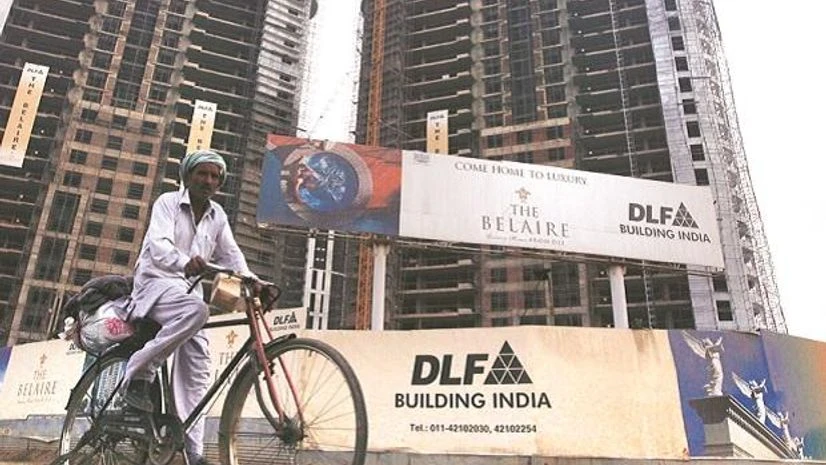Realty major DLF's Chairman Rajiv Singh has said rising mortgage rates could pose "near-term" challenges to demand momentum in the housing sector but the company expects no major adverse impact.
He noted that the residential segment has witnessed structural recovery on strong demand and the credible players are gaining market share.
In his address to the company's shareholders at the 57th AGM held on Wednesday, Singh said: "The residential segment exhibited a strong structural recovery over the last two years, well supported by tailwinds of the fundamental demand drivers".
Larger and credible players continued to gain market share on account of consolidation in their favour along with improving consumer confidence, he added.
"Rising mortgage rates do appear to pose near-term challenges to this demand momentum; however, we do not anticipate any significant material adverse effect given the latent demand in our sector as well as the inherent strength of the Indian economy," Singh said in his speech, which was uploaded on the stock exchanges.
Also Read
The Reserve Bank of India has increased the repo rates by 140 basis points since May to control inflation. As a result, the interest rates on home loans have increased to around 8 per cent from about 6.5 per cent in the last few months.
In line with this rebound in demand, the DLF Chairman said the company has introduced new product offerings across multiple geographies and multiple product markets and consequently delivered healthy growth in new sales bookings for this fiscal.
"Our super luxury offering - The Camellias has set a new benchmark in high-quality living. While we remain focused and committed to getting the right products in our relevant markets, we are proceeding with caution by keeping a close watch on the evolving landscape," Singh said.
DLF's sales bookings rose to Rs 7,273 crore in 2021-22 from Rs 3,084 crore in the preceding fiscal.
In the first quarter of this fiscal, sales bookings doubled to Rs 2,040 crore from Rs 1,014 crore in the year-ago period.
On the rental business, the Chairman said it is also on a steady path to recovery with occupiers now returning to workplaces.
"Our focus remains on creating quality assets, which offer differentiated experience along with a safe and sustainable ecosystem. The first phase of our new development - DLF Downtown in Gurugram recently got completed and we expect it to start getting operational in the next few months," he said.
The development of other commercial assets across Gurugram, Chennai and Noida remains on track.
DLF holds the bulk of rental assets in DLF Cyber City Developers Ltd (DCCDL), which is a joint venture between the company and Singapore's sovereign wealth fund GIC. DLF has a nearly 67 per cent stake in the JV firm, while GIC has the remaining.
On the shopping malls segment, Singh said the company is enthused by the strong rebound in the retail segment. He mentioned that the consumption trends continue to be reassuring and are reaching the pre-pandemic levels.
"This has led us to attempt scaling up our plans for this segment and we hope to double our retail presence in the next few years by developing new retail destinations across multiple locations, including the Mall of India at Gurugram," Singh said.
At present, DLF has a retail footprint of 42 lakh square feet, comprising eight properties, including malls and shopping centres, mainly across Delhi-NCR.
In March, DLF had said it would invest around Rs 2,000 crore to construct two new shopping malls in Gurugram and Goa. It has also started a concept of high-street neighbourhood shopping centres and plans to build at least four such properties.
DLF is the largest real estate company in terms of market capitalisation. It has so far developed more than 153 real estate projects comprising over 330 million square feet of area.
The group has 215 million square feet of development potential across residential and commercial segments. The group has a rent-yielding commercial portfolio of over 40 million square feet.
(Only the headline and picture of this report may have been reworked by the Business Standard staff; the rest of the content is auto-generated from a syndicated feed.)

)
